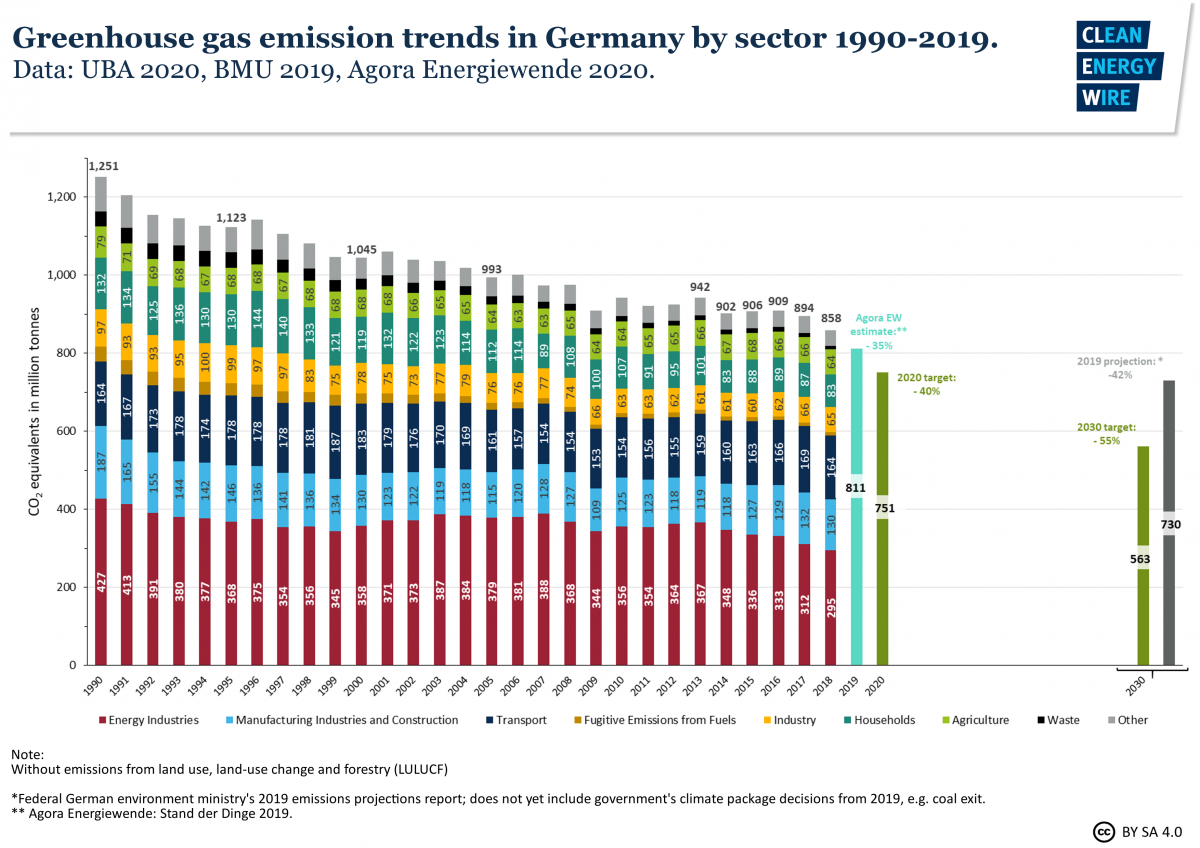Germany caused fewer emissions in 2018 than previously thought
Clean Energy Wire
Germany's emissions fell stronger in 2018 than originally assumed, the country's environment agency UBA said in its final account of that year's greenhouse gas output. Emissions fell by four percent or 35.9 million tonnes to 858.4 million tonnes versus 2017 levels, the UBA said. In comparison to the base year 1990, emissions fell 31.4 percent by 2018, according to the new calculations reported to the European Commission. The environment agency had previously estimated that total emissions were around 866 million tonnes, a decrease of 30.8 percent. "Emissions in transport fell for the first time since 2012," the UBA said, adding that the decline was likely due to higher fuel prices.
Germany's downward trend in emissions continued in 2019, when a sharp drop in coal use pushed the country "surprisingly” close to its 2020 climate target, the energy think tank Agora Energiewende* said earlier this year. Germany aims for a 40 percent emissions cut in 2020 compared to 1990 levels; the reduction added up to around a 35 percent reduction by 2019. But Agora Energiewende also said that a rising CO2 output from transport and heating tarnished Germany's success in the fight against the climate crisis, and warned that emissions could rise again over the next years.
*Like the Clean Energy Wire, Agora Energiewende is a project funded by Stiftung Mercator and the European Climate Foundation


